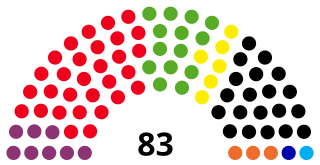
The Free Democratic Party is a liberal and classical liberal political party in Germany. The FDP is led by Christian Lindner.

Germany is a democratic, federal parliamentary republic, where federal legislative power is vested in the Bundestag and the Bundesrat.

The South Schleswig Voters' Association is a regionalist political party in Schleswig-Holstein in northern Germany. The party represents the Danish and Frisian minorities of the state.
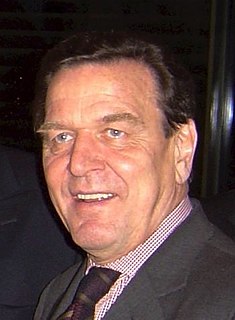
Federal elections were held in Germany on 27 September 1998 to elect the members of the 14th Bundestag. The Social Democratic Party emerged as the largest faction in parliament, with its leader Gerhard Schröder becoming Chancellor.

Federal elections were held in Germany on 18 September 2005 to elect the members of the 16th Bundestag. This became necessary after a motion of confidence in Chancellor Gerhard Schröder failed on 1 July. Following the defeat of Schröder's Social Democratic Party (SPD) in a state election, Schröder asked his supporters to abstain from the Bundestag motion, knowing the motion would fail and thus triggering an early federal election.
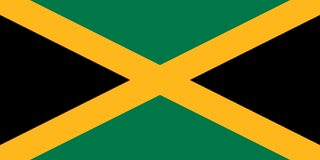
Jamaica coalition is a term in German politics describing a coalition among the parties of the Christian Democratic Union/Christian Social Union (CDU/CSU), Free Democratic Party (FDP), and the Green Party.

Traffic light coalition is a term originating in German politics where it describes a coalition government of the Social Democratic Party of Germany (SPD), the Free Democratic Party (FDP), and the Greens. It arises from the fact that the parties' traditional colours, respectively red, yellow, and green, resemble the normal colour sequence of a traffic light (Ampel). It has subsequently been used to describe similar coalitions between social democrats, liberals, and greens in other countries.
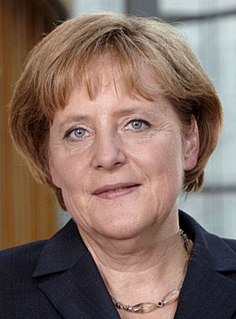
Federal elections took place on 27 September 2009 to elect the members of the 17th Bundestag (parliament) of Germany. Preliminary results showed that the Christian Democratic Union (CDU), its Bavarian sister party, the Christian Social Union (CSU), and the Free Democratic Party (FDP) won the election, and the three parties announced their intention to form a new centre-right government with Angela Merkel as Chancellor. Their main opponent, Frank-Walter Steinmeier's Social Democratic Party (SPD), conceded defeat. The Christian Democrats previously governed in coalition with the FDP in most of the 1949–1966 governments of Konrad Adenauer and Ludwig Erhard and the 1982–1998 governments of Helmut Kohl.
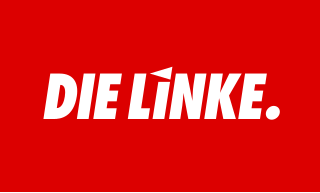
The Left, also commonly referred to as the Left Party, is a democratic socialist political party in Germany. It is considered to be left-wing populist by some researchers. The party was founded in 2007 as the result of the merger of the Party of Democratic Socialism (PDS) and the Electoral Alternative for Labour and Social Justice (WASG). Through the PDS, the party is the direct descendant of the ruling party of the former East Germany (GDR), the Socialist Unity Party of Germany (SED).

The German Social Union is a small conservative political party mainly active in the new states of Germany. It was founded in 1990 as a right-wing opposition group during the Wende transition to democracy in East Germany, when it was part of the Alliance for Germany electoral coalition. In 2015 it has about 100 members.

The Landtag of Baden-Württemberg is the state diet of the German federal state of Baden-Württemberg. It convenes in Stuttgart and currently consists of 143 members of five political parties. The majority before the 2016 election was a coalition of the Alliance '90/The Greens and the Social Democratic Party (SPD), supporting the cabinet of Green Minister-President Winfried Kretschmann. The current majority coalition is of the Alliance '90/The Greens and the CDU.

Federal elections were held on 22 September to elect the members of the 18th Bundestag of Germany. At stake were all 598 seats to the Bundestag, plus 33 overhang seats determined thereafter. The Christian Democratic Union/Christian Social Union (CDU/CSU) of Chancellor Angela Merkel won their best result since 1990, with nearly 42% of the vote and nearly 50% of the seats. However, their coalition partner, the Free Democrats (FDP), failed to meet the 5% vote threshold in what was their worst showing ever in a federal election, thus denying them seats in the Bundestag for the first time in their history.
State elections were held in Saarland on 30 August 2009, the same date as the Saxony and Thuringia state elections. The election decided control of the Landtag of Saarland.
The last Berlin state election was held on 18 September 2011, to elect members to the Abgeordnetenhaus of Berlin. All 141 seats were up for election. Berlin was governed by a coalition between the Social Democratic Party and The Left at the time. Current mayor Klaus Wowereit was the favourite heading into Sunday's election.

The 2011 Baden-Württemberg state election was held on 27 March 2011 to elect members to Baden-Württemberg's state diet, the Landtag of Baden-Württemberg in Stuttgart. It was the 14th state election since the foundation of Baden-Württemberg in 1952. Prior to the election, Stefan Mappus of the Christian Democratic Union had led a coalition government between his party and the Free Democratic Party. His government was defeated in the election. Alliance '90/The Greens, who achieved their best result in a state election up to this point, formed a coalition with the Social Democratic Party.

The Mecklenburg-Vorpommern state election was conducted on 4 September 2011, to elect members to the Landtag of Mecklenburg-Vorpommern. The State Landtag was controlled by a grand coalition of the Social Democratic Party and the Christian Democratic Union prior to the election.

On 20 February 2011, a state election was held in Hamburg, Germany, for the 20th legislative period of the Hamburg Parliament after World War II. The election is a result of the collapse of the coalition government led by the Christian Democratic Union (CDU) and the Green Alternative List (GAL). The Hamburg Parliament was officially dissolved on December 15, 2010. The Social Democratic Party (SPD) won an absolute majority after winning 62 seats. Absolute majorities are considered rare in Germany. The Free Democratic Party (FDP) re-entered parliament after failing to win any seats in the previous election.

A Bremen state election were held on 10 May 2015, to elect the Bürgerschaft as well as the Bremische Stadtbürgerschaft and the Stadtverordnetenversammlung Bremerhaven.

State elections were held in Saarland on 26 March 2017. All 51 seats in the Landtag of Saarland were up for election. The incumbent Minister-President Annegret Kramp-Karrenbauer went into the election leading a grand coalition of her Christian Democratic Union (CDU) and the Social Democratic Party (SPD), seeking re-election after serving two terms as Minister-President.
